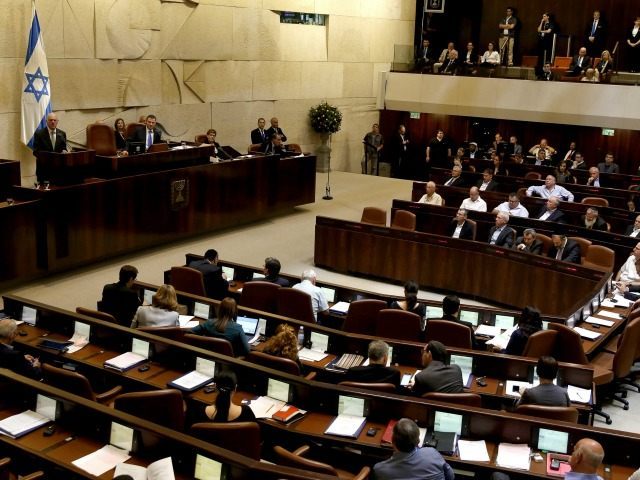TEL AVIV – The Knesset announced on Tuesday that a ban on short skirts will remain in place but enforcement will be gradual, a committee of lawmakers and parliamentary staff ruled.
In December, members of Knesset protested in solidarity with parliamentary aides who were barred from entering the building because their skirts were deemed too short. Zionist Union MK Manuel Trajtenberg stripped down to his undershirt in front of Knesset security guards, shouting to fellow protesters, “Tomorrow you will all be wearing burqas.”
Under the new system, violators will be given at least two warnings of “inappropriate” attire before being denied entry but the regulations will remain the same.
Although the current prohibitions on various clothing items and the rules governing the length of dresses and skirts will remain unchanged, Knesset Spokesman Yotam Yakir said in a statement that a new “enforcement mechanism” will be introduced that will “include the issuing of warnings prior to the denial of entry to the premises.”
The decision to leave the current regulations intact while altering the enforcement process was reached by a committee composed of elected Knesset members and parliamentary workers who were appointed by Knesset Speaker Yuli Edelstein to resolve the issue.
December’s protest was triggered by revised regulations issued in November that prompted the barring of parliamentary aides. “Tank/spaghetti tops, cropped tops, shorts or three-quarter length trousers, ripped trousers, shirts with political slogans, short skirts and short dresses, flip-flops or open-back clogs” for “adults and youth aged 14 and over” were added to the list of forbidden clothing.
The new system stipulates that Knesset guards may only enforce the rules on offenses committed by their own gender.

COMMENTS
Please let us know if you're having issues with commenting.